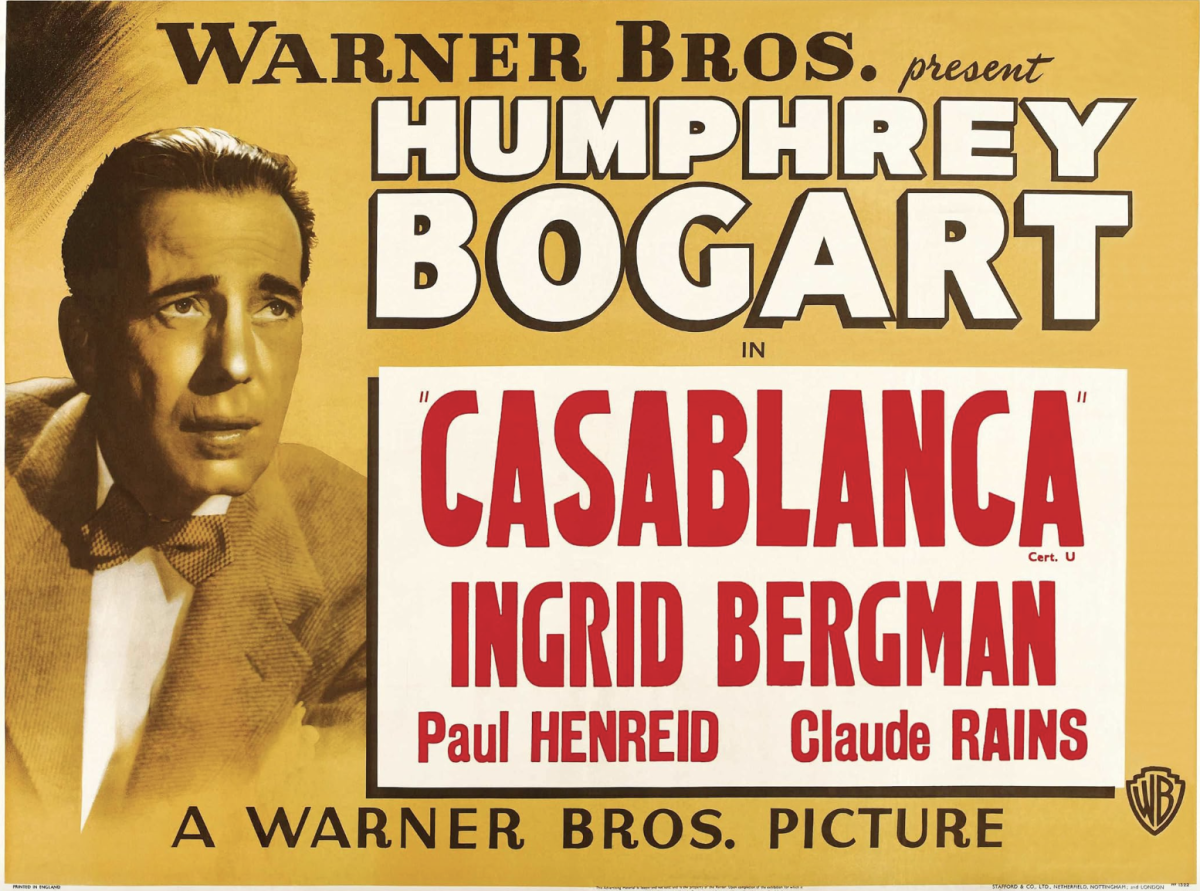“Casablanca,” directed by Michael Curtiz, is regarded as one of Hollywood’s greatest films. It is set in the French-occupied Moroccan city of Casablanca, where countless World War II refugees traveled to secure their voyage to the Americas and escape the war. The film follows Rick (Humphrey Bogart), an American owner of an eccentric saloon in Casablanca, called Café Américain. The saloon draws diverse characters to its doors, many of whom enjoy their moments in the spotlight.
When audiences first meet Rick, they find a disgruntled business owner, wearied by the effects of the war. But questions circulate throughout the saloon about what extinguished the revolutionary spirit he once had. Soon, the film reveals what locked away Rick’s heart and conscience: his lost love Ilsa, whom he met in Paris. Since their separation, Rick had bottled up any ounce of feeling and pretended not to have a stake in the war – and 1940’s Casablanca was indeed the place to be indifferent.
But a scandal regarding the murder of two German couriers carrying letters of transit, essential for anyone who wanted to flee to the Americas, finds its way into the saloon. The regulars of Café Américain become engrossed in the social and political impacts of the war. Rick puts aside his heartbreak, while Ilsa, along with her husband, Czechoslovak Resistance leader Victor Lazlo, are in uncomfortably close proximity to him.
While the black-and-white lens may alienate contemporary viewers, “Casablanca” has much to teach them about dealing with the social and political issues of their time and moving forward with hope. The film asks important questions: when should we forget our own distress to help someone in need? When should we fight for our values? This is visible throughout “Casablanca” as Rick debates whether to let Ilsa go to the Americas for the greater good.
“Casablanca” powerfully demonstrates how things as simple as relationships and self-defeat can become tangled with the sheer political devastation of World War II. It shows how tyranny can carry out its violence slowly and subtly, impacting everyday life. The film seems daunting to watch at first, but its evocative script, beautiful weaving of themes and dynamic storytelling will keep viewers engaged in the moment.
“Casablanca” was released in 1942, in the midst of WWII. The film was a form of resistance because it was produced during a period of uncertainty, and had incredibly high stakes involved in its production. It contributed to the strained dialogue surrounding the United States’ role in the war, urging the country to abandon its isolationist principles and become actively involved. It went on to win three Academy Awards, including Best Picture in 1944. In addition, many actors themselves were refugees of WWII. The film’s engagement with the larger political powers of the time cannot be understated, given its commercial and historical success.
As contemporary audiences navigate the tense sociopolitical climate of modern times, returning to iconic films like “Casablanca” could indeed be a source of hope, inspiration and newfound optimism for the future. As a student, I think about the world I am entering – one in which climate change advances, in which deadly atrocities are committed against the Palestinian people, in which deadly unrest devastates Bangladesh, in which a convicted felon can run for U.S. office and so on. “Casablanca” reminds us that we are not alone in our struggle for a just world.
With its 82nd anniversary approaching, learning from “Casablanca” is not meant to be a deep dive of the past or a generic lesson about not repeating history. History repeats itself, so where do we find the strength to deal with it? The characters and filmmakers alike of “Casablanca” had no way of knowing how it would end. They marched forward anyway. We can, too.
Medha Mankekar can be reached at [email protected].



















